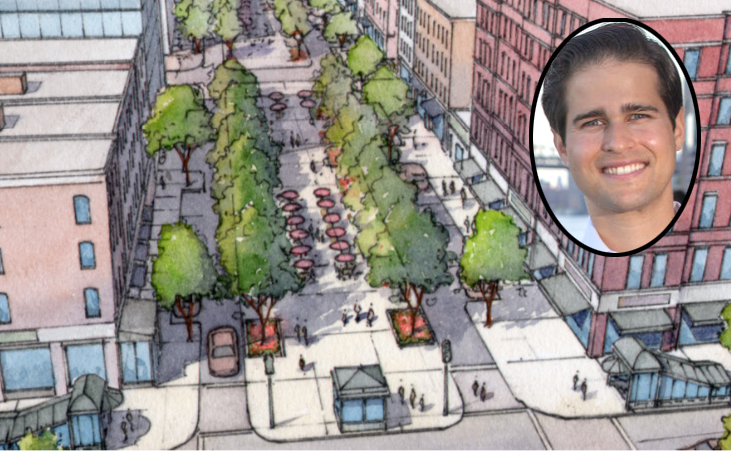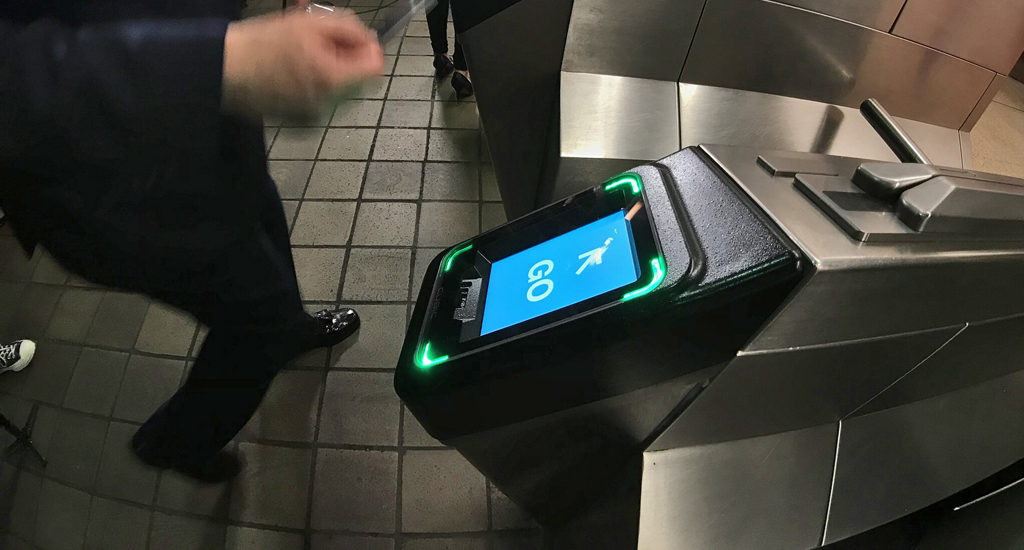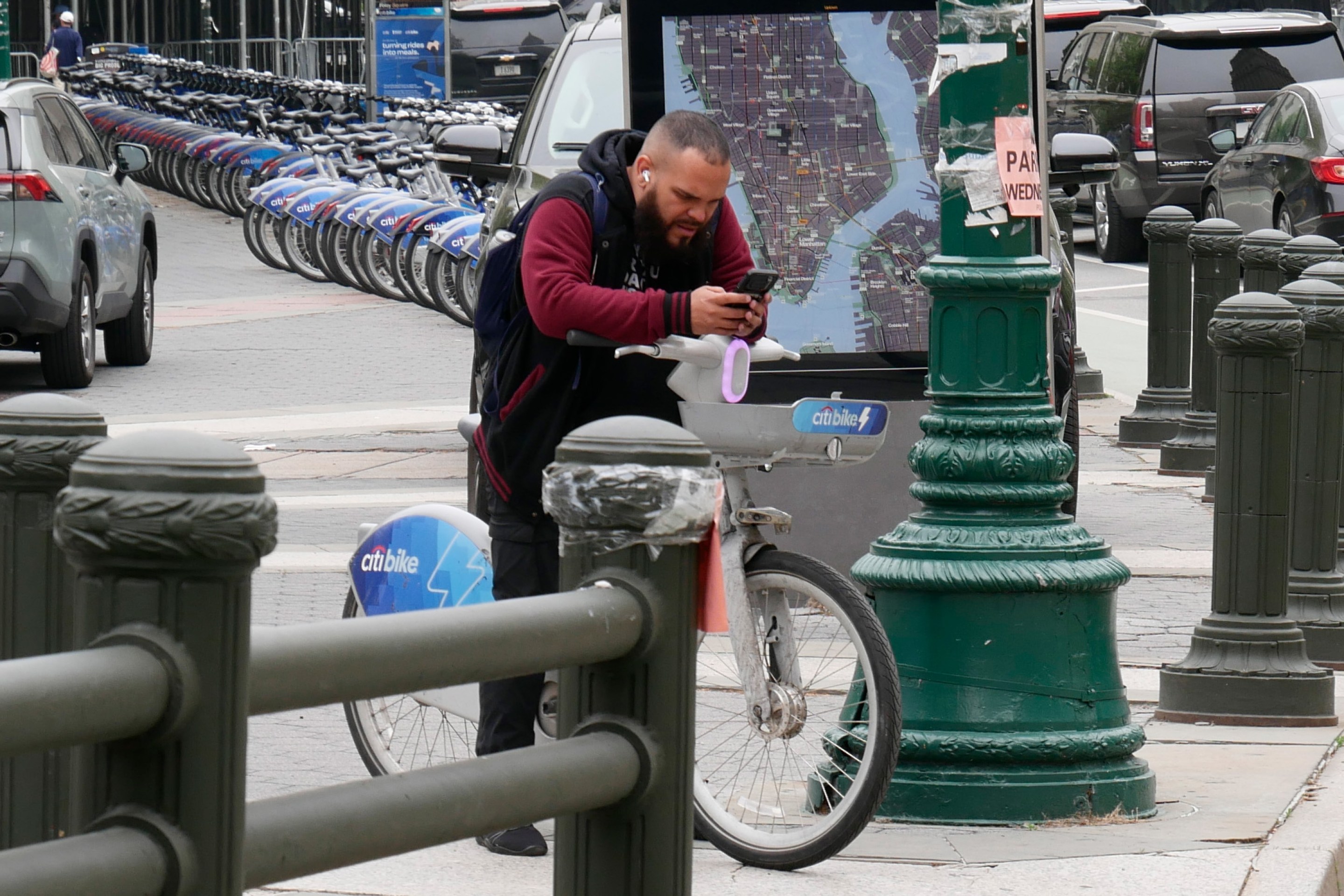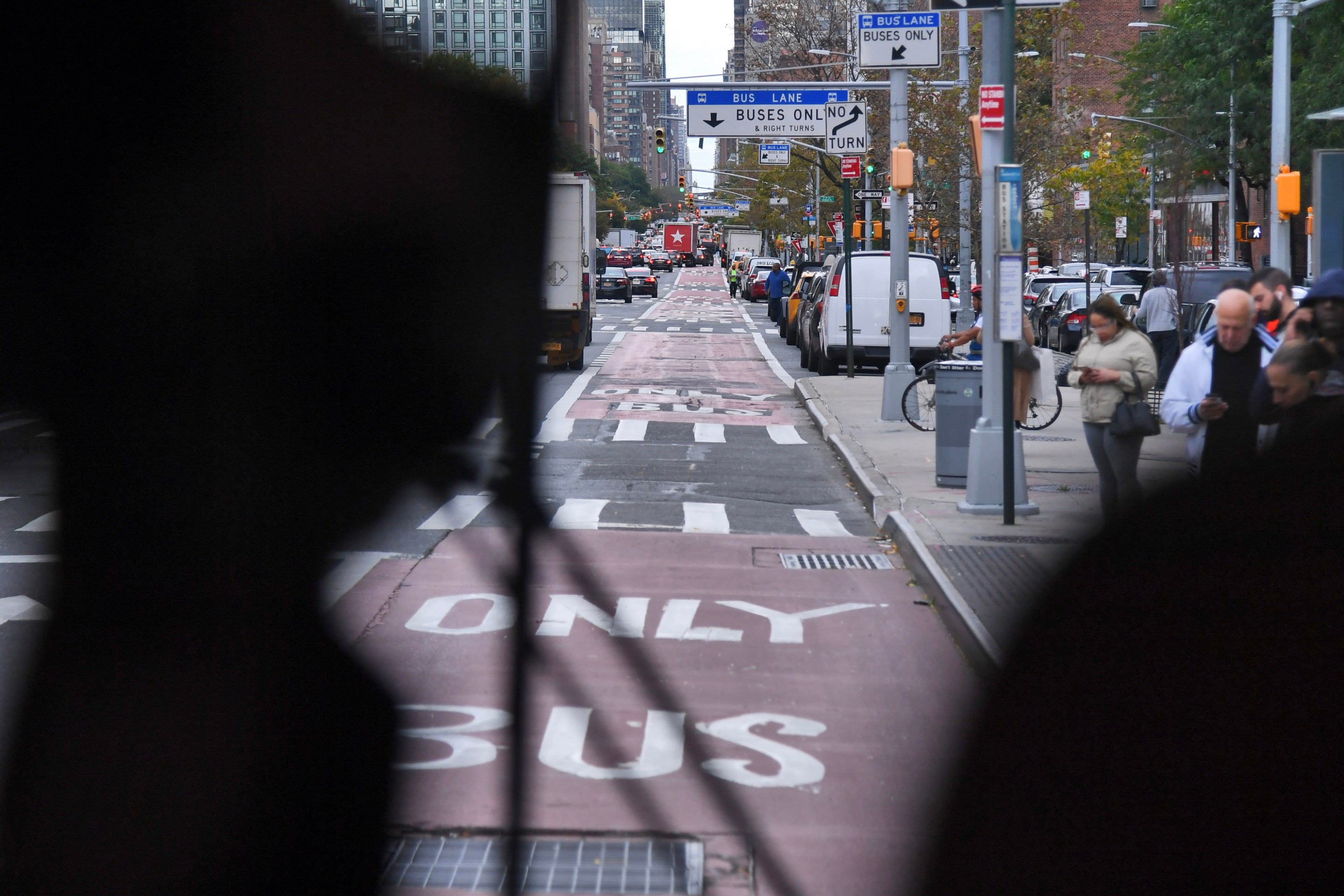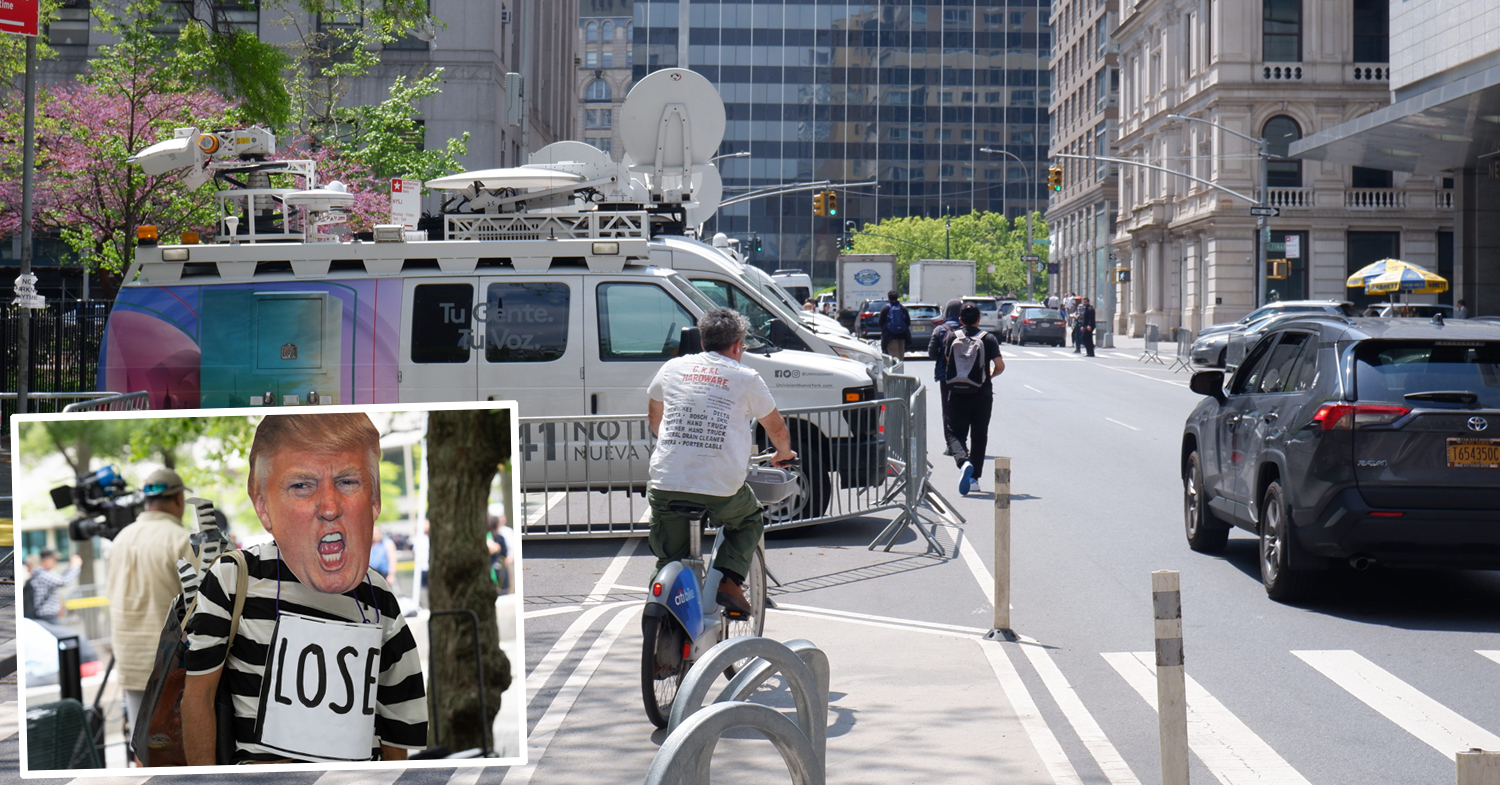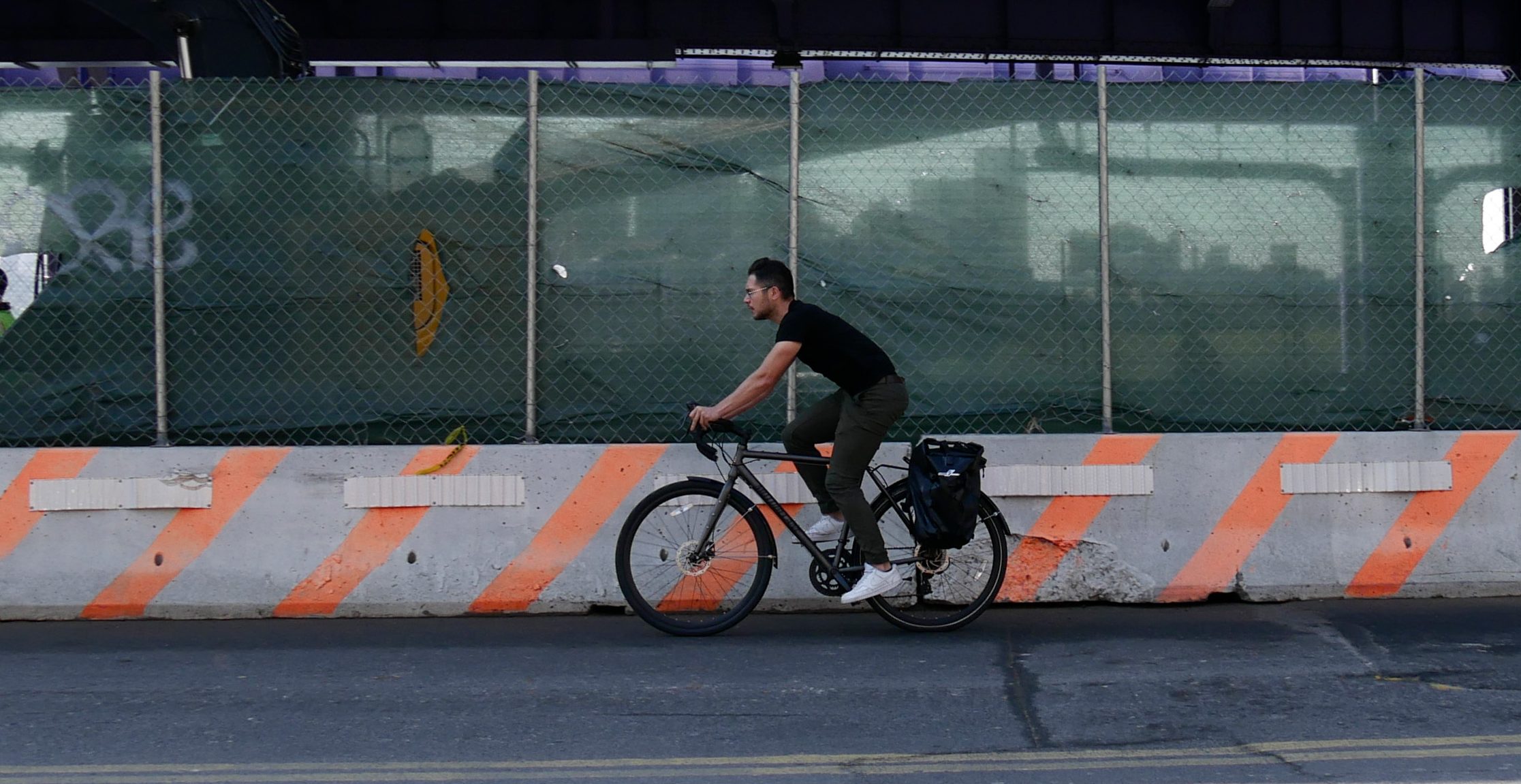This is the latest story in our ongoing coverage of the council race on the Upper East Side of Manhattan. Previous installments included an op-ed on the need for accessibility in transit by Rebecca Lamorte and coverage of Julie Menin's transportation plan.
An Upper East Side council hopeful is pushing his own bold vision for transportation in a neighborhood council race that is already one of the most progressive in town.
Attorney Billy Freeland, who also sits on the local community board, will unveil a four-point plan on Tuesday that he says puts the needs of pedestrians and cyclists above private car owners to champion a safer and more equitable community and city — and it goes several steps further than establishment candidate Julie Menin, who called for creating more green space by shrinking the FDR drive.
How much further? Freeland would get rid of the pollution conduit altogether.
“Our policy has set the bar for not just this field, but the entire city. I think this is an issue we want to go farther than anybody on, totally replacing the FDR,” the candidate said.
How would that work?
Freeland's position paper says the FDR Drive would be converted to "a space integrating the East River Esplanade with the adjacent streets.”
Instead of the highway, Freeland envisions "a waterfront surface transportation option — either bus or by tram — that will connect the easternmost reaches of the neighborhood with the East 90th Street ferry landing, Midtown East, East Harlem, and beyond."
The lost road capacity would be made up with "region-wide subway, bus, and commuter rail improvements [and] high-capacity terminal facilities for improved crosstown bus service on all major crosstown streets."
Freeland is so far endorsed by Bike New York’s Jon Orcutt, transportation expert Charles Komanoff, Juan Restrepo of Transportation Alternatives, and safe streets advocate Hindy Schachter, whose husband Irving Schachter was killed in 2014 by a teen cyclist in Central Park.
Part one of Freeland's plan is Transit Revival, which includes:
- Completing a network of protected bike lanes, and sponsoring legislation to call on DOT to build at least 100 miles of protected bike lanes every year.
- Widening existing bike lanes; creating loading bikes, and expanding bike parking.
- Bringing Citi Bike to more people and municipalizing the service.
- Installing 75 miles per year of protected bus lanes and busways citywide.
Part two centers on public spaces, and the plan includes:
- Creating a Director of the Public Realm to coordinate how the city manages its public spaces, rather than being controlled by multiple agencies with competing goals and disparate agendas.
- Making open streets permanent to support pedestrians, restaurants, retail, and the arts, and streamlining the permitting process for small businesses
- Supporting Transportation Alternatives’s "NYC 25X25" plan to convert 25 percent of space devoted to cars to space devoted to people by 2025.
- Ending placard abuse by creating an electronic placard system managed by DOT, and reducing the number of placards currently in circulation.
Part three centers on accessibility, an area that Rebecca Lamorte, a rival for the District 5 seat, has staked out. Freeland says he would:
- Hold the MTA accountable to ensure all subway stations become accessible
- Expand the Fair Fares program
- Push DOT to accelerate rollout of bike share “handcycles” for those who cannot ride a traditional bicycle
Part four is called "Ensuring Justice for Workers on Our Streets," and in addition to the prior support for more safe infrastructure, Freeland says he would:
- Fight for delivery workers’ rights, and demanding an end to targeted police enforcement.
- Propose a delivery workers’ bill of rights that secures a living wage, recognition as employees, and access to clean restrooms
In addition to replacing the FDR entirely, Freeland also wants to transform Third Avenue into a boulevard-style promenade to make what’s now the seven-lane roadway safer for pedestrians and cyclists. Freeland says he would take from John Massengale’s “Yorkville Promenade,” which was itself inspired by Barcelona’s La Rambla, and apply it to Third Avenue (photo at the top of this post).
“There’s no protected bike lane, it serves a lot of buses and cars move very quickly. I’d convert one of the major avenues into a grand boulevard, with space for pedestrians and cyclists and space for people to sit,” he said. “It creates a beautiful promenade for people, and dramatically reduces not just car congestion but makes it safer and more pleasant.”
But what remains one of the biggest challenges to creating more open space, and installing more bus and bike lanes, is the city’s current system of needing community engagement and community board support — which Freeland is no stranger to.
Last month, Upper East Siders unleashed terror on Department of Transportation reps after the agency proposed making the temporary bike lanes on E. 61st and 62nd streets between York and Fifth avenues permanent and better protected. After nearly four hours of locals berating DOT reps, including one woman phoning it in from California to say bike lanes were destroying the city she abandoned, the board ultimately tabled the vote. The board is expected to rehear the plan on April 7.
Freeland says community boards should not have veto power, and believes that a more visionary legislative body and mayor will empower DOT to forge ahead with life-saving projects, even without full community support.
"No one is ever satisfied 100 percent, we have to realize the dozens of differing opinions. We know what we have to do, we have to invest in public transit, open spaces, bike lanes, pedestrian spaces with urgency," he said. "If we don't act quickly we know people will die, get injured, and continue to produce carbon emissions. We need to act with the urgency we see in places like Paris. If we have a mayor and council with a sense of urgency, that's how we're going to get a transit renaissance."
Freeland is vying for the seat currently occupied by term-limited Ben Kallos against four similarly transit-focused candidates, including Menin — the city’s former commissioner of consumer affairs and media and entertainment — who wants to expand green space on the Upper East Side by taking away space from the FDR Drive; journalist Kim Moscaritolo; social worker Tricia Shimamura, who also serves as first vice chair of Community Board 8 and co-chair of its Parks and Waterfront Committee ; and disability-rights advocate Lamorte.
But Freeland believe his track record sets him apart from his competitors.
"My leadership on the community board for closing the Second Avenue bike lane gap, supporting crosstown bike lanes, supporting congestion pricing shows I'm not always taking the popular position," he said. "Anyone can say all the right things, but it's how you've voted and where you've been on major fights in the community."
